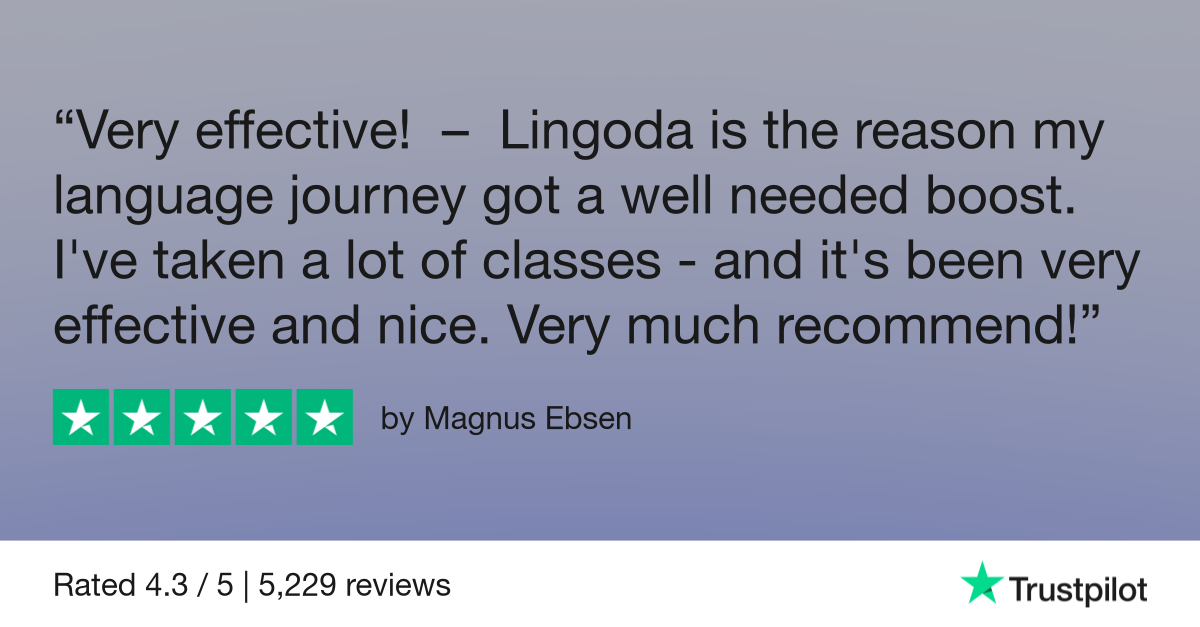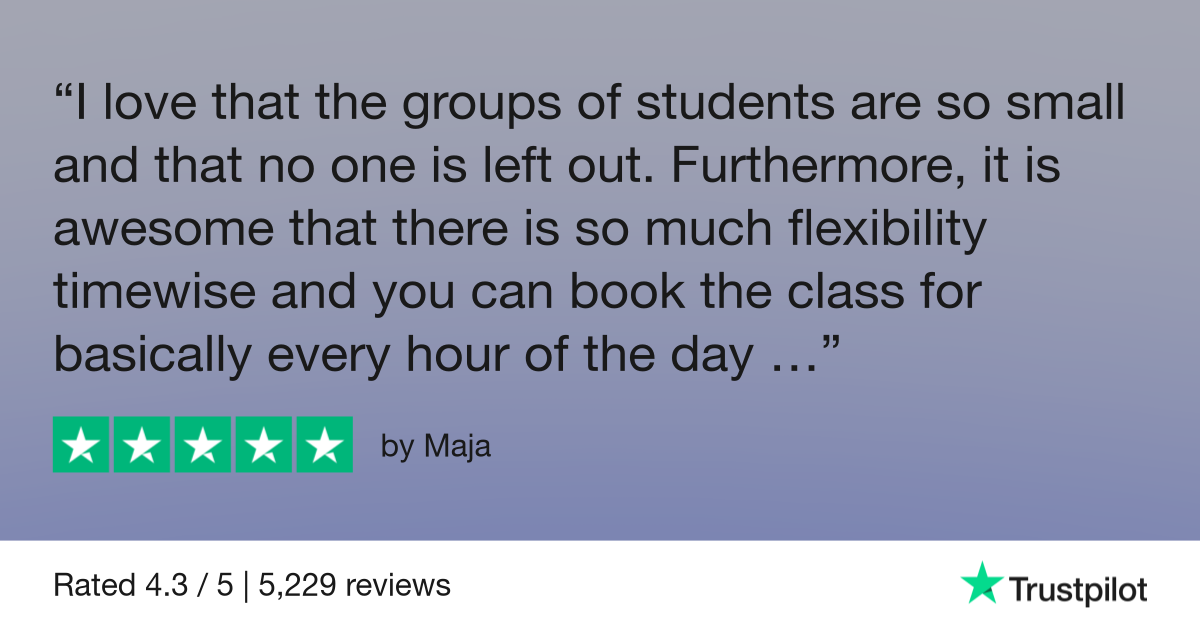The 10 hardest words in Spanish (and why they’re so tricky!)

When you’re just starting out with Spanish, there might be certain words that are more difficult to pronounce than others –even just looking at them can feel overwhelming! Don’t get discouraged. Learning an entirely new language means getting used to new sounds, letter combinations, spelling rules and, sometimes, even a whole new alphabet. Nevertheless, getting your pronunciation right is key for clear communication, so it’s worth putting in the effort.
Below, you’ll find 10 of the hardest words to pronounce in Spanish, along with some tips on how to nail those tricky sounds.
- Why learn these words?
- 1. Otorrinolaringología (Otolaryngology)
- 2. Ferrocarril (Railroad)
- 3. Ahorro (Savings)
- 4. Guajolote (Turkey)
- 5. Popocatépetl (Mexican Volcano)
- 6. Alrededor (Around)
- 7. Ejército (Army)
- 8. Ciudad (City)
- 9. Estadounidense (American)
- 10. Esbirro (Henchman)
- Why are these Spanish words so hard?
- Making the hard things easy
Why learn these words?
Learning some (or even 10!) of the hardest words to pronounce in Spanish early on can help turbo-charge your journey. It’ll help you improve your pronunciation, vocabulary and spelling.
You might not use these words next time you make small talk in Spanish or when you’re learning some Spanish phrases for beginners, but they’re still good practice for getting simpler vocabulary right. Plus, as you advance, you’ll start using them in conversation –and you’ll be comfortable with them already!
If you need a structured way to practice and really boost your speaking skills, Lingoda’s interactive lessons with expert teachers can help you confidently master these essentials.

Learn Spanish with Lingoda
How it works

1. Otorrinolaringología (Otolaryngology)
We’re starting with a banger: otorrinolaringología (otolaryngology). This is the medical field that deals with all things nose, throat and ears.
This word can be hard to pronounce because of its length –it’s composed of 10 syllables (o-to-rri-no-la-rin-go-lo-gí-a), making it one of the longest words in Spanish. Additionally, it has many consonants and that dreaded ‘rr’.
Here are some tips to tackle it:
- Practice the ‘o’ sound (‘oh’ like in ‘go’).
- Start by separating the syllables and moving slowly. As you progress, start gluing it together.
- Practice the easiest way to roll your ‘rr’ –this sound is made by placing the tip of your tongue behind your upper teeth and letting it vibrate (it’s the same spot as when you say a ‘t’).
- Remember that in Spanish, when the ‘g’ is followed by an ‘i’, it sounds like an ‘h’ in English.
- Vocal stress falls on the final 'í'. Notice the accent mark separating the 'í-a' into two syllables: /oh-toh-rri-no-la-rin-goh-loh-HE-ah/.
2. Ferrocarril (Railroad)
This word can mean either railroad or train. It’s particularly difficult because it features two ‘rr’s and different vowels.
Here are some pointers:
- Practice first your vowels –‘eh’, oh’, eeh’.
- Now, focus on the two ‘rr’ syllables: ‘rro’ and ‘rril’.
- Vocal accent goes on the final vowel: /feh-rro-ca-RRIL/.
- If you want to take it to the next level, learn this tongue-twister: Rápido corren los carros por los rieles del ferrocarril (the cars run fast on the train’s railroad).
We must say that this word has been largely replaced by tren. Learn how different Spanish-speaking countries pronounce ferrocaril in this video.
3. Ahorro (Savings)
Ahorro is another one with a ‘rr’ –are we seeing a pattern here? It also features an ‘h’, which is pronounced differently than in English.
Let’s dive into it:
- In Spanish, the letter ‘h’ is silent –except when it’s part of a ‘ch’, where it sounds like the ‘ch’ in ‘chocolate’. So when you say this word, or any other where an ‘h’ is paired with a vowel, just ignore that ‘h’: /ah-OH-rro/.
4. Guajolote (Turkey)
This word originates from the Indigenous Náhuatl language, and it can be tricky to pronounce because of its vowels and usage of ‘g’ and ‘j’, which can throw some English speakers off.
How can we learn it?
- Let’s focus first on the ‘gua’ sound –the ‘g’ here is a hard, guttural sound, like the ‘g’ in ‘good’. The combination with ‘ua’ sounds just like in ‘Guatemala’.
- The ‘j’ makes a soft, guttural sound, similar to the ‘h’ in English (like in ‘hot’).
- That ‘te’ at the end is short –like ‘teh’.
- Separate it into syllables /gua-jo-LO-te/ to practice.
Guajolote is often replaced by pavo, so we might not find this word in casual conversations. However, it might still pop up on traditional restaurant menus in Mexico.
5. Popocatépetl (Mexican Volcano)
The Popo is a volcano in Mexico near Mexico City. This word also comes from Náhuatl and it means “smoking mountain” –and, yes, it’s difficult to pronounce even for some locals (especially children)!
- Start by separating the word into syllables: /po-po-ca-TÉ-petl/.
- Focus now on the ‘petl’ syllable, particularly the ‘tl’ sound (pronounce the ‘t’ and then snap your tongue to make the ‘l’).
- Place vocal emphasis on the ‘té’ syllable (notice the written accent mark again–here is a review of Spanish accent marks and rules).
6. Alrededor (Around)
The combination of an ‘l’ and ‘r’ can make this word hard to pronounce, along with all those vowels and ‘d’ sounds.
- The ‘r’ here, since it’s preceded by an ‘l’, sounds just like the rolled ‘rr’.
- The ‘d’ has a soft sound, similar to how ‘th’ is pronounced in the English word 'the'.
- Break the word into syllables /al-re-de-DOR/ and focus on practicing the vowel sounds.
7. Ejército (Army)
This word can be confusing to non-native speakers due to the ‘ci’ syllable. Let’s break it down:
- The ‘c’ here is combined with an ‘i’, so it sounds like sí. Remember that the ‘j’ is similar to the ‘h’ sound in English.
- The final ‘to’ is a short sound like ‘oh’: /eh-HEHR-si-toh.
8. Ciudad (City)
If you’re just starting to learn Spanish, you might get ciudad mixed up with cuidado (care) because of their similar spelling. However, once we get the rules down, it’ll be easier to tell them apart:
- As we mentioned above, when a ‘c’ is paired with an ‘i’, it sounds like an ‘s’. But if it’s followed by a ‘u’ (like in cuidado), it sounds like a ‘k’: /syu-DAHD/
Now, that ‘d’ at the end of ciudad can be difficult for English speakers. It’s pronounced like a ‘th’ sound that stops abruptly. Check out this video and listen to a native speaker pronouncing ciudad.
9. Estadounidense (American)
Phew, at six syllables, this is a long one: es-ta-dou-ni-den-se. And all those vowel sounds! Just looking at it can be confusing.
Here are some key points to take this one on:
- Start by practicing each syllable. Focus first on the vowel sounds (‘eh’, ‘aah’, ‘ou’, ‘eeh’...).
- Practice the ‘ou’ sound in the ‘dou’ syllable –first separate it into ‘oh’ and ‘ooh’ (for the ‘u’) and then put it back together.
- Incorporate the consonants into each syllable.
- Vocal stress is on the second-to-last syllable.
- Slowly start gluing it back together: /es-tah-do-ooh-ni-DEN-seh/
10. Esbirro (Henchman)
This isn’t a common word that you’ll find in daily conversations, but you might come across it in literature. What can make this word difficult is the ‘sb’ consonant cluster, which may feel unnatural to some students… and, of course, there’s that rolled ‘rr’, but, by now, you’ve probably got it down.
- To learn the ‘sb’ sound, first separate the syllables –es-bi-rro.
- Focus on the natural transition your mouth makes when going from ‘es’ to ‘bi’.
- Prolong the ‘s’ sound that goes before ‘bi’ –ssss-bi… This will help you get used to the ‘sb’ combination.
- Once you’ve got a hang of it, glue the word back together and read it normally: /es-BEE-roh/
Why are these Spanish words so hard?
Some Spanish words are particularly hard to pronounce because of:
- Jargon: Medical terms like otorrinolaringología are especially tough to memorize because they’re not commonly used or are found only in specific, technical contexts.
- Difficult consonant clusters: Words like alrededor and ejército have consonant clusters that can be difficult to master.
- Unfamiliar sounds: Sounds like the infamous rolled ‘r’s can be challenging to non-native speakers.
- Indigenous language influence: The influence of indigenous languages, like in guajolote and Popocatépetl, can add other unfamiliar sounds and uncommon letter combinations or placements (like that -etl at the end of Popocatépetl). These can be difficult even for native Spanish speakers.
Making the hard things easy
Pronouncing words correctly is crucial for effective communication. But let’s face it, it’s not so easy to learn sounds that aren’t part of our native language –for example, English speakers might struggle with rolling their ‘r’s compared to, say, Italians.
We hope that this list of 10 of the hardest words to pronounce in Spanish helps you practice all those sounds and letter combinations you might need help with… And if you’re looking to level up your Spanish some more, join us at Lingoda! Our native-level teachers will help you speak Spanish from day one and give you all the tips and tricks to nail your pronunciation.

Learn Spanish with Lingoda
How it works

















